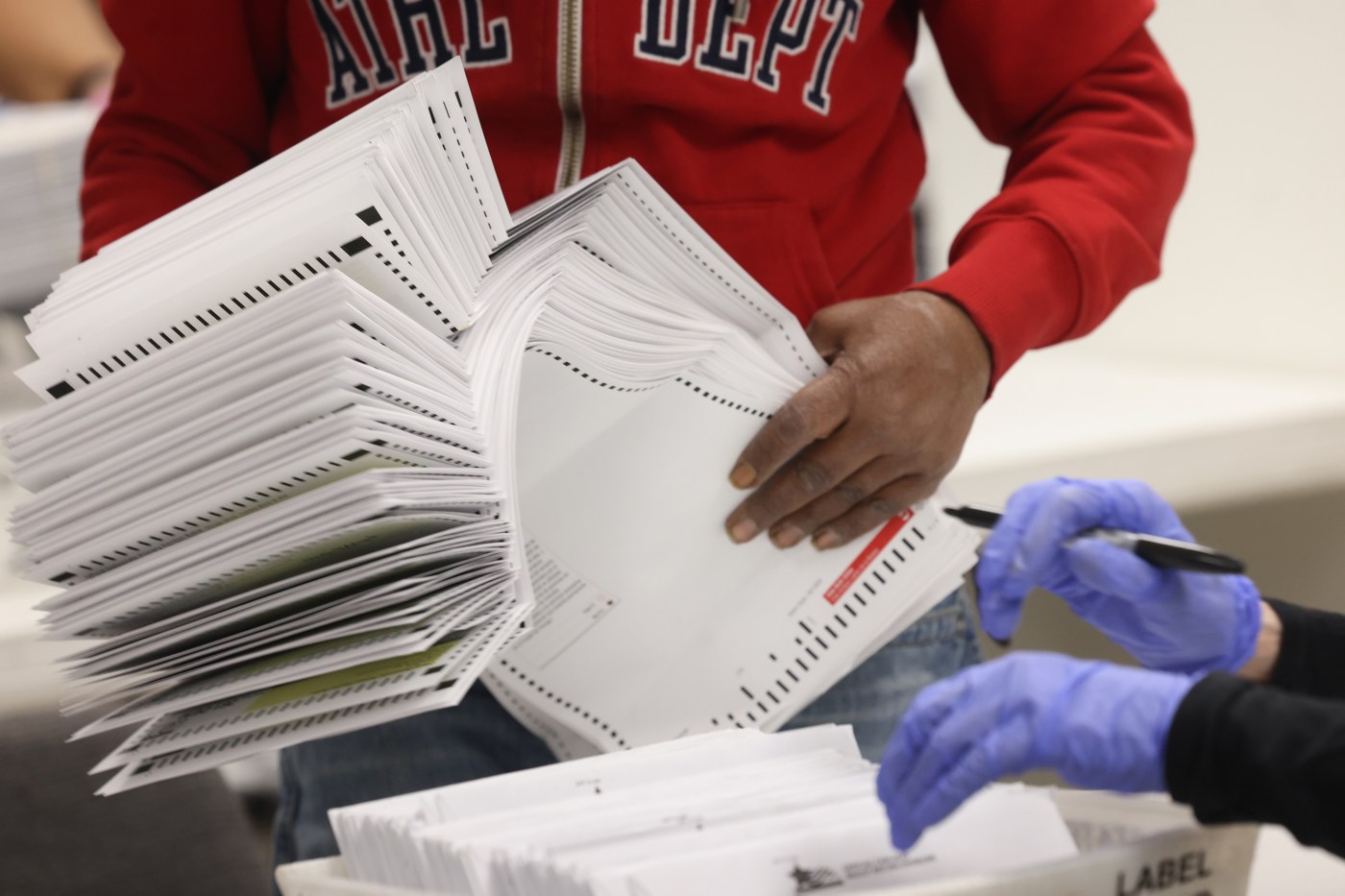The U.S. Supreme Court has agreed to hear arguments in a Mississippi case that could have a major impact on Illinois’ efforts to promote voting by mail. The high court is expected to decide whether ballots cast and postmarked on or before Election Day in a general election can be counted if received afterward.
The combined suit, brought by the Republican National Committee and the Libertarian Party and supported by the conservative law group Judicial Watch, asks the Supreme Court to uphold a 5th U.S. Circuit Court of Appeals decision. That ruling stated that ballots must be received by Election Day in November to be counted.
Under Illinois law, mail-in ballots postmarked or certified on or before Election Day can be counted by local election authorities up to 14 days after the election. Similarly, a 2020 Mississippi law, enacted during the COVID-19 pandemic, allowed mail-in ballots to be counted within five business days following Election Day.
The Supreme Court’s decision could have wide-ranging effects in Illinois and as many as 27 other states, along with the District of Columbia, where local and state laws allow the counting of ballots received after Election Day. Illinois filed a brief supporting the existing Mississippi law.
Judicial Watch is also behind a similar effort to restrict post-Election Day vote counting in a federal lawsuit filed on behalf of veteran downstate Republican U.S. Rep. Mike Bost of Murphysboro. However, federal courts in Chicago dismissed the lawsuit, ruling that Bost lacked standing. The Supreme Court has already heard oral arguments regarding standing but has not yet issued a ruling.
The Mississippi case ruling could come as early as July 2024, just months before the critical midterm elections that will decide control of Congress. Historically, Democrats have been better organized in early voting and vote-by-mail campaigns. In contrast, former President Donald Trump has repeatedly urged voters to cast ballots only on Election Day, falsely claiming that mail-in ballots are prone to fraud.
Illinois has taken several steps to expand voting access, including mail-in voting. The state recently allowed voters to request that local election authorities send them mail ballots permanently. During the 2020 COVID-19 general election in Illinois, one-third of the nearly 6.1 million ballots cast were by mail. In 2022, mail ballots accounted for nearly 18% of the 4.1 million votes cast. Last year, nearly 1 in 5 of the 5.7 million ballots cast were mail-in ballots.
In the 2022 general election, over 110,000 ballots were returned and counted during the 14-day post-election period, including 3,252 overseas military votes. In last year’s general election, more than 99,000 ballots arrived and were counted after Election Day, including nearly 1,000 military ballots.
At the heart of the case is the October 25, 2024, ruling by a panel of the 5th U.S. Circuit Court of Appeals. The panel asserted that the federal statute establishing a uniform day for federal elections—and the U.S. Constitution’s Elections Clause—require that all ballots be both “cast by voters and received by state officials” by the end of Election Day.
The appeals court ruled that the term “election” includes both the casting and receipt of ballots, with an election considered complete only when all ballots have been received. It stated, “Text, precedent, and historical practice confirm this ‘day for the election’ is the day by which ballots must be both cast by voters and received by state officials.” The court added that a ballot is considered “cast” only when the state takes custody of it, not when a voter fills it out.
Reacting to the Supreme Court’s decision to hear the case, Ken Martin, chair of the Democratic National Committee, called the lawsuit “a multipronged effort by Trump and Republicans to restrict vote-by-mail and early voting.”
“Voting by mail and voting early are safe, secure, and empower more eligible voters to participate in our elections. That is a good thing for our democracy,” Martin said in a statement. “The DNC will fight like hell in this case for the rights of Mississippians and every other citizen to make sure their voices are heard and their votes are counted.”
On the other side, Tom Fitton, president of Judicial Watch, said the Supreme Court “now has an opportunity to reaffirm that ‘Election Day’ means what it says under federal law.”
“Counting ballots received after Election Day not only violates federal law but encourages voter fraud and undermines voter confidence,” Fitton said.
https://www.chicagotribune.com/2025/11/11/supreme-court-mail-in-voting-illinois/
